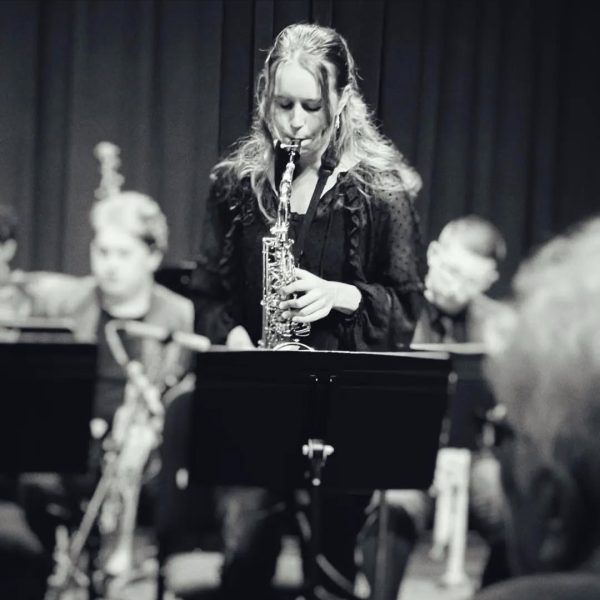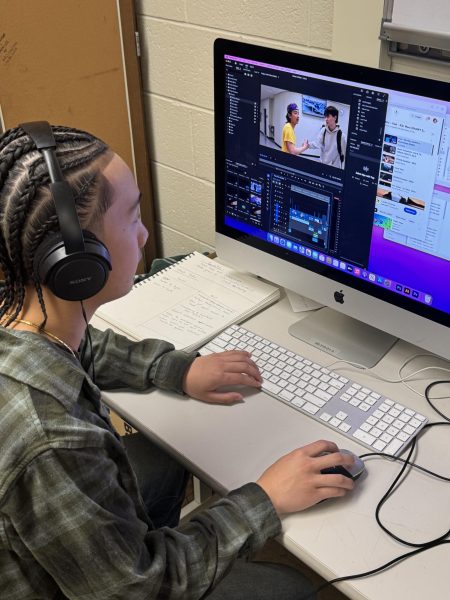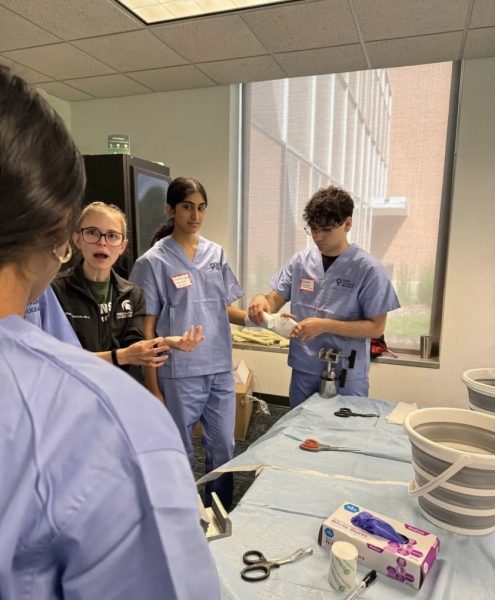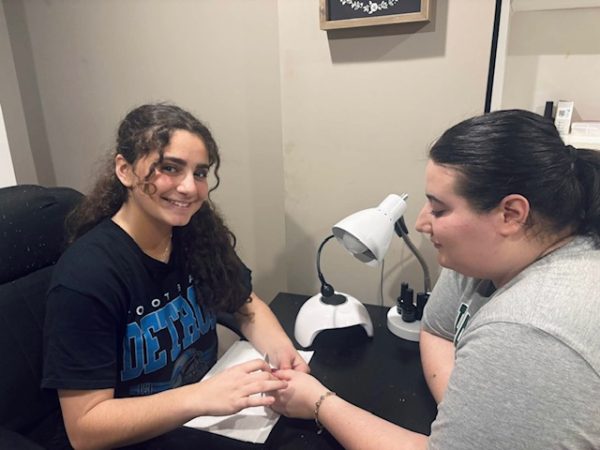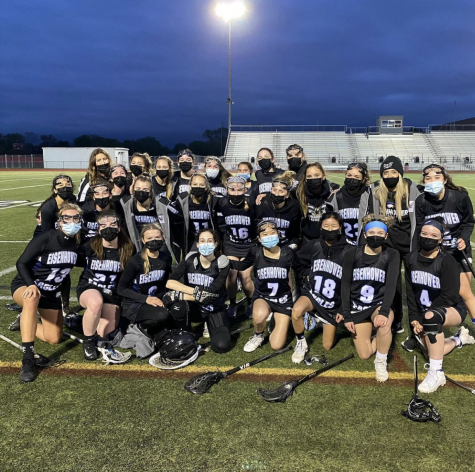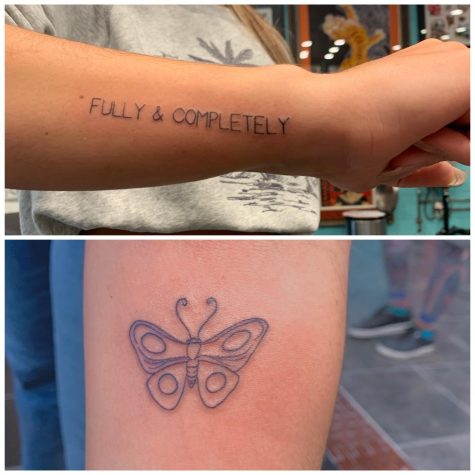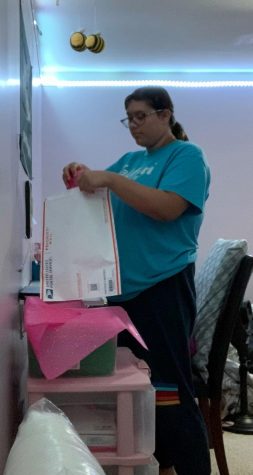The new “normal”
Throughout the past year, Covid-19 alters ways of living
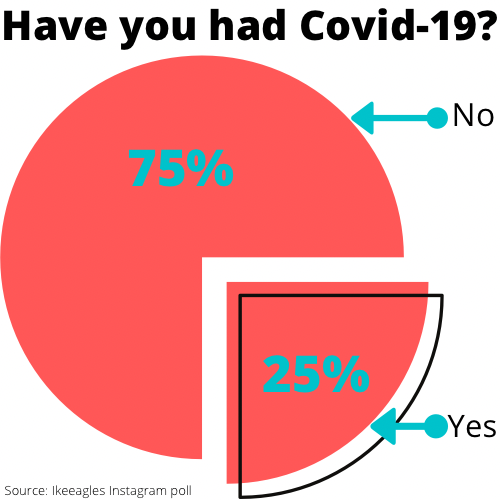
Covid-19 doesn’t discriminant. Young, old, rich, poor, black, white, male, female. It’s impact is far reaching and long lasting.
“No one knows the side effects of this virus. I have been having a harder time breathing while playing soccer and I have no idea if that will ever go away,” junior Ella Chene said. “My family thought we did everything we possibly could to stay safe and we still got it. We really don’t know where it came from. This made it harder to adjust back into our somewhat normal lives after having Covid.”
Lives were also impacted in work places, restaurants, retail stores and schools, which all experienced shut downs as a result of the national pandemic. What started as a two week remote learning period announced on March 12, 2020, turned into remote learning for the remainder of the school year.
“I don’t like it because it’s hard to stay focused and it’s hard to learn; but I understand why it’s necessary,” senior Annalee Misch said.
While some districts tried to open for face-to-face, including UCS opening the elementary schools and junior highs, in the end most transferred students to remote learning to stay safe and limit exposure.
“For many students that I have talked with, they feel that they are having an easier time working remote/virtual this fall than they did last spring because there is more structure and the technology and platforms are more consistent,” counselor Amy Chappelle said.
The online environment provides more clear direction and consistency for students; however, virtual learning is different and something most students are not familiar with. This results in a variety of challenges for student learners. Sticking to a daily routine of getting up, dressed and logging on to class on-time, are key components for success in virtual learning, according to Chappelle.
“In addition, it is helpful to have an organized workspace to help students stay focused, alert and mindful of instruction. Many students that have struggled with fatigue and disengagement during online learning are often in their pajamas, not eating breakfast and working on their laptops in bed. Establishing a specific workspace helps establish healthy boundaries between ‘school time’ and ‘personal/family time,’” Chappelle said.
With the switch from in-person to online learning, teachers underwent a large change as well; after meetings and classes, Utica Community Schools (UCS) teachers learned to work and teach on Schoology and Microsoft Teams platforms. While some teachers struggle with online teaching and a different routine, some find it easier.
“I actually don’t mind teaching online,” chemistry teacher Melissa Minton said. “I have really bad vocal scars and by the end of the week I can barely speak [when in person]. Teaching online with muted students saves my voice, so that I can confidently teach.”
This state-wide shut-down time also allowed for family bonding and working on oneself. Many took this time to workout and eat healthy in order to become fit, while others enjoyed eating popcorn for family movie nights. No matter what people did or didn’t do, mental health became a big topic people couldn’t ignore.
“I’d go outside to get some fresh air [during quarantine], obviously only staying in the backyard, but that helped a lot. I also listened to music, chilled with my siblings and slept a lot,” sophomore Marsida Cukaj said.
During this shutdown time, many people picked up a new hobby or learned a new skill. With nothing much to do staying at home, learning how to cook or learning different TikTok dances provided a respite from boredom and personal growth.
“I believe that we all should’ve learned and grew during all of this. I really got to learn more about the Catholic faith. I also became way more mindful and learned how to help others,” Cukaj said.
Although many people spent time with their family, others felt more alone.
“Many students are having a more difficult time with their emotions and mental health as the pandemic continues and they are not able to be around friends and family.”
Being at home with little to nothing to do leaves one with their thoughts, which can lead to negative feelings about oneself or the situation surrounding them.
“I think the worst part in my scenario would be the lack of social interaction with my dear friends and family. I don’t have a lot of close family here. I am pretty social, but things have not continued on so we just haven’t done book club; we haven’t done Bunco. There’s a lot of things that we just don’t do. We did some stuff via Zoom, but it’s just not the same,” science teacher Nancy Nichols said. “That’s the saddest part. It’s obviously not in the big scheme of things; it’s not crucial, but it’s definitely something that is impacted.
“The longer this goes on, the sadder it’s going to be. I miss my friends. I miss my work and my co-workers, although some of them still go to Ike, so every once in a while I’ll go up there and see them.”
The school and district offers outlets for students to reach out to if they struggle with remote schooling or the current pandemic in general. Reaching out to a teacher, counselor or administrator through email, Microsoft Teams chat, Schoology message or phone calls is an effective way to share concerns.
“We welcome students reaching out to us because that is really the only way; we know they are having a difficult time,” Chappelle said. “We are here to help.”
In addition to school staff, reaching out to friends and fellow students helps to make an impact on students’ mental health. School clubs, like Supporting Others Arise Radiantly (SOAR) and others found on eisenhower.uticak12.org, connect students and help improve their mental health. The UCS Wellness page, which shares a virtual Calming Room, webinar events, Covid Support Services, community resources and the Monday Moments that focus on kindness and inspiring hope, are all additional resources found on the UCS homepage.
“Many students miss seeing their friends at school and the different social events that happen during the school year, so it is easy to feel lonely and isolated,” Chappelle said. “It is so important to stay connected with your friends during this time.”
Through all the abnormalities this pandemic threw at the world, silver linings managed to break through some of the dark clouds and give people something to learn from.
“I think [Covid is] a little bit of both [good and bad],” Chene said. “It really scared my family because my mom was really sick, but I also feel like it gave me a different perspective on life. The situation really put into perspective how much family really means.”
Your donation will support the student journalists of Eisenhower High School. Your contribution will allow us to purchase equipment and cover our annual website hosting costs.

